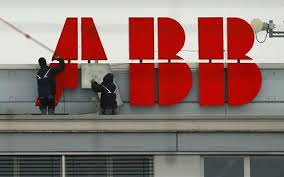Counterfeit Goods: Third Party Due Diligence Beyond the FCPA
 Lauren Connell, Managing Associate at The Volkov Law Group, joins us again for a posting about third-party due diligence. Lauren’s profile is here, and she can be reached at [email protected].
Lauren Connell, Managing Associate at The Volkov Law Group, joins us again for a posting about third-party due diligence. Lauren’s profile is here, and she can be reached at [email protected].
Most discussions of third party due diligence begin with an explanation of indirect liability and the “deliberate ignorance” standard of knowledge the FCPA imposes. With so much focus on anti-bribery it is easy to lose sight of the underlying reason you need to know who your third party business partners are: you are trusting them with your business secrets and reputation.
Third party business partners take on many sensitive and critical tasks for companies doing business internationally. Distributors can build up, or destroy, good will in an entire region. Customs brokers can create or solve export transaction problems that have the potential to delay business for months. Counterfeit good investigators can protect the integrity of your brand… or resell your seized counterfeit goods on the black-market while simultaneously charging hundreds of thousands of dollars for “seizing” those goods in the first place.
This might sound like an extreme example, but that is precisely what happened to Swiss power technology company ABB Asea Brown Boveri Ltd, which makes circuit breakers in China. A recent NY Times article (available here) laid out the scheme. ABB hired a Chinese anti-counterfeiting company to investigate and fight against the sale of counterfeit ABB-branded circuit breakers, a market in the hundreds of millions of dollars, that imperils ABB’s brand.
But instead, it seems that the Chinese anti-counterfeiting company, China United, proceeded to cooperate with manufacturers to make fakes, arrange to have some of them “seized” (while the remainder were sold), and then bill ABB hundreds of thousands of dollars for a “successful” raid. Over the nine-year relationship, China United invoiced ABB millions of dollars for its “protection.” In 2009, a whistleblower alerted ABB to potential falsification of cases and cooperation with a counterfeiter to manufacture fakes, later to be seized and billed as a successful raid.
The scariest part for U.S. business may be what happened next. An investigator ABB hired was badly threatened, then beaten, and its investigation was shut down. After that experience, ABB hired a more sophisticated firm to undertake an undercover investigation that revealed widespread faking of anti-counterfeit cases and that China United was double-crossing ABB. Instead of simply ending the relationship, ABB went on the offensive and filed cases in a Beijing court.
The judges took one working day to come to a verdict against ABB, despite ABB’s 1,500 pages of evidence submitted. ABB was ordered to pay China United about half a million dollars in investigation fees. That ruling was upheld on appeal.
China United’s reputation suffered from this case and was disbanded. However, several former China United executives have since bought a stake in a Shanghai intellectual property protection company. That company has landed Fortune 500 clients.
 Would your due diligence review uncover this type of connection? To truly protect your organization against potentially harmful relationships with third parties the depth of your due diligence must match the importance of the third party relationship. A due diligence review must often go beyond a simple name screening, it must look behind a company’s name to see the beneficial owners and possible connections to entities that raise red flags.
Would your due diligence review uncover this type of connection? To truly protect your organization against potentially harmful relationships with third parties the depth of your due diligence must match the importance of the third party relationship. A due diligence review must often go beyond a simple name screening, it must look behind a company’s name to see the beneficial owners and possible connections to entities that raise red flags.
The reasons your organization should focus on the strength of its due diligence reviews go far beyond potential FCPA liability, as ABB’s nightmare shows. Don’t limit your third party due diligence program by keeping a narrow focus on the FCPA, take a 360 degree view of due diligence to mitigate risks that can come from any direction.















